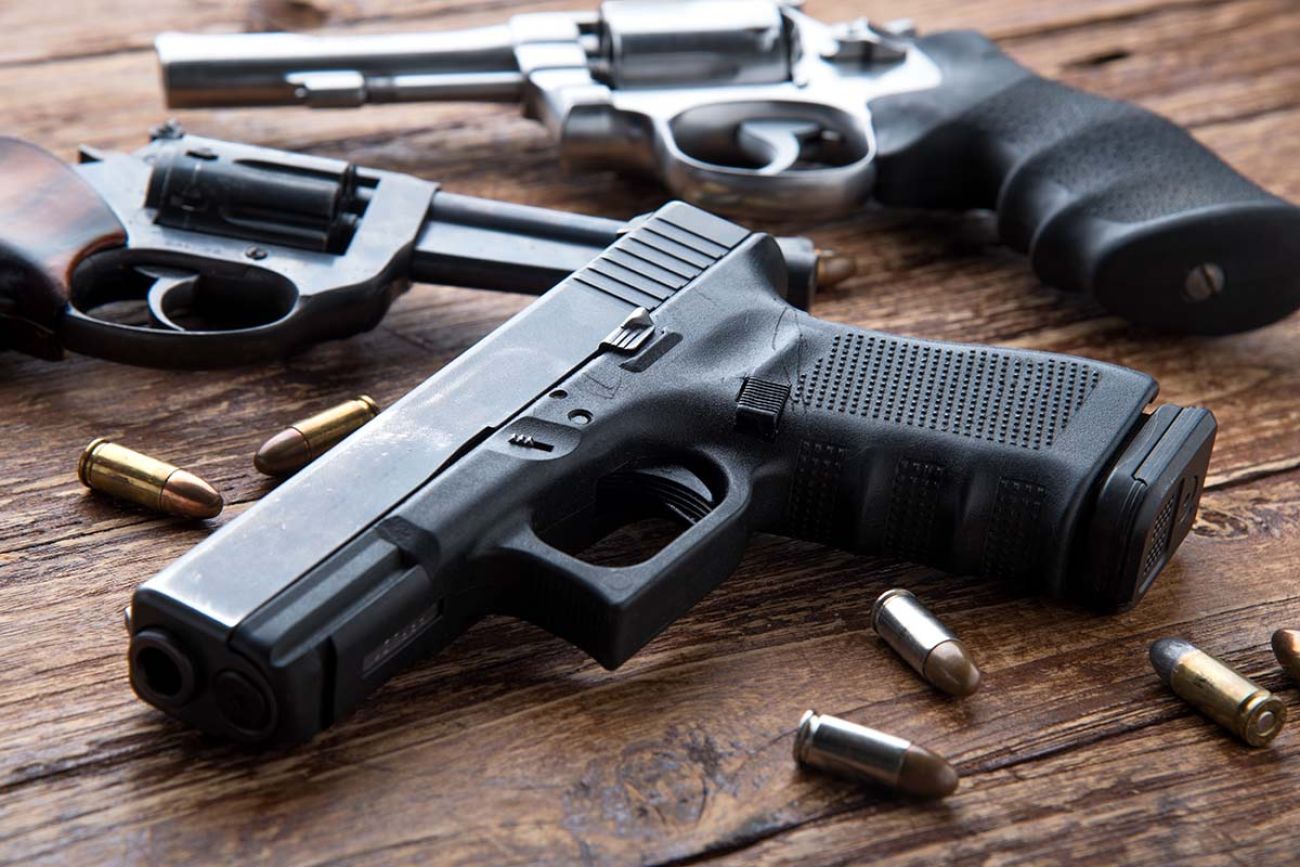Michigan Dems aim to ban guns at voting locations

- The Michigan Senate approves a ban on openly carrying guns in or around voting locations or absentee ballot counting boards
- The legislation faces likely delays in the House, where Democrats are temporarily without a voting majority
- Secretary of State Jocelyn Benson previously attempted to ban guns at voting centers but was ultimately blocked by the courts
LANSING, MI — A plan to ban openly carried guns at Michigan voting locations passed the state Senate Thursday, but a House split means the bills likely won’t reach Gov. Gretchen Whitmer’s desk anytime soon.
Democrats approved the two-bill package in party-line votes, calling it the latest step in their effort to protect the democratic process.
“We have to make sure that this process to participate in fair and free elections is not obstructed by people who intentionally want to cause … intimidation, fear and distress — and have a tool like a firearm to utilize it,” said Senate Elections Committee Chair Jeremy Moss, D-Southfield.

Republicans opposed the bills en masse, however.
Sen. Ruth Johnson, R-Groveland Township, said the bills would only “serve to restrict the rights of law-abiding citizens in our state.” She took issue with the idea that a person openly carrying within 100-feet of a ballot drop box could be “inadvertently charged with a crime.”
Related:
- New Michigan laws ban domestic abusers from owning guns for eight years
- Gun reform, tax cuts among dozens of Michigan laws taking effect in February
- Jocelyn Benson loses in court for third time over her voting rules
At that, Moss laughed, pointing to other Republican-led states like Texas, Ohio and Mississippi, which have some form of a gun ban at polling locations.
“I heard rhetoric that this is unconstitutional, that this strips people of their rights,” he said. “I don't think that somebody can make that case when Texas does it.”
Senators made some changes to the bills before approving them. That means the legislation will need to return to the House for final votes before getting Whitmer’s signature.
The House, however, is stuck at a 54-54 partisan split, and has been since the beginning of the year after two Democrats resigned from their roles in late 2023. As a result, the legislation is unlikely to advance until April, when Democrats are expected to regain their majority through special elections.
Even if the House and Whitmer eventually give final approval, the gun ban would not be implemented until after Michigan’s 2024 presidential election. Senate Republicans on Thursday denied both bills “immediate effect,” meaning they would not be operational until 90 days after the Legislature adjourns for the year, which usually happens in December.
Democrats have attempted to ban guns at polling locations since at least 2020, when Secretary of State Jocelyn Benson tried to do so on her own. She was quickly sued by gun rights groups who argued she was violating their Second Amendment rights.
Courts eventually struck down Benson’s ban, ruling she had exceeded her authority as secretary of state, not that the policy itself was inherently unconstitutional.
Under the legislation approved Thursday, a person could not bring a firearm in or within 100-feet of a voting location while polls are open on Election Day, unless they carried their weapon concealed and had a permit to do so.
The same rules would apply to early voting locations, as well as absentee ballot drop boxes, for the 40 days prior to an election.
During that 40-day window a person could not bring their gun into, or within 100-feet of, a city or township clerk’s office or their satellite locations.
Violations could result in a $100 fine, up to 90 days in jail, or both.
Sen. Jim Runestad, R-White Lake, and Sen. Kevin Hertel, D-Saint Clair Shores, offered amendments to the bills ahead of their passage, five of which were ultimately approved.
Under those changes, off-duty police officers would be included in the list of individuals allowed to carry a firearm near voting drop boxes, polling locations, and absentee ballot counting boards.
“Obviously, cops can be trusted just as much off-duty as when they’re in uniform,” Runestad said.
Other changes would also allow gun owners to have their weapons if visiting someone whose private dwellings are within 100-feet of an absentee ballot drop box or polling location.
A person could also keep a firearm in their vehicle outside a polling location, ballot drop box or absentee ballot counting board.
See what new members are saying about why they donated to Bridge Michigan:
- “In order for this information to be accurate and unbiased it must be underwritten by its readers, not by special interests.” - Larry S.
- “Not many other media sources report on the topics Bridge does.” - Susan B.
- “Your journalism is outstanding and rare these days.” - Mark S.
If you want to ensure the future of nonpartisan, nonprofit Michigan journalism, please become a member today. You, too, will be asked why you donated and maybe we'll feature your quote next time!




